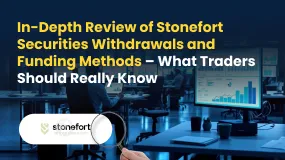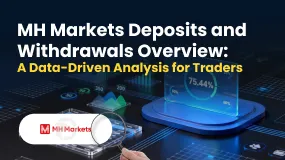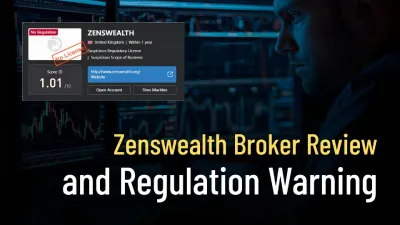简体中文
繁體中文
English
Pусский
日本語
ภาษาไทย
Tiếng Việt
Bahasa Indonesia
Español
हिन्दी
Filippiiniläinen
Français
Deutsch
Português
Türkçe
한국어
العربية
Seven Common Trading Mistakes
Abstract:The forex market is easy to enter but hard to master, or exit with a profit. This paradox explains why so many participants eventually get burned, wash out, and look for safer hobbies.

In many cases, these folks just made dumb mistakes that could easily have been avoided, given the proper guidance and discipline.
KEY POINTS
Common mistakes force the majority of forex traders to ‘wash out’ and leave the markets.
Poor trend recognition is a major reason why traders fail.
Leverage is deadly to new traders, encouraging unskilled participants to risk too much capital.
The chosen market interface (platform) has to meet the traders specific needs.
Stop losses keep traders ‘in the game’ long enough to develop important skills.
Here are the most common mistakes made by new forex traders.
1. Choosing the Wrong Platform
A robust platform is essential if you want to trade the forex market. The ‘right’ platform will provide solid educational resources, access to news, a dependable real-time feed, an easy-to-read trading interface, and a variety of trading signals. The software should also include access to major currency and cross-currency pairs, as well as minor and exotic pairs you find of interest.
2. Risking Too Much
Newcomers let the fear of missing out (FOMO) take control, encouraging excessive risk. This is a classic mind-cramp that starts when new traders see missed opportunities and wonder how much they would have gained while forgetting much they could have lost. Say you lose 50% of your capital on a single trade. You now need to double your money on the next trade, just to break even. That isn‘t sustainable, especially if you’re just getting started in the forex market.
Only trade what you can afford to lose. A good rule of thumb: risk no more than 2% of capital on a single position, or a combination of correlated positions (pairs that move together). The percentage might seem small but its an effective methodology to stay in the game long enough to develop profitable skills.
Another advantage: you‘ll stay calm and not lose your cool the next time you’re stuck in a losing trade. It will also discourage closing out good trades too early out of panic because youre now willing to lose up to the percentage limit.
3. Ignoring Longer Time Frames
The longer the trend higher or lower, the stronger and more durable it will be. Many traders walk into the forex market with a day trading mentality, getting sucked repeatedly into 1-minute to 15-minute chart signals. However, trends on hourly, daily, and weekly time frames exert much greater control, causing the majority of contrary short-term signals to fail. For example, a dip on a 15-minute chart means nothing without a review of higher time frames.
4. Trading with Poor Risk-to-Reward Ratio
The act of trading releases adrenaline and focuses attention, generating addictive sensations that aren‘t impacted by profits or losses. This bad chemistry induces the new trader to take positions with poor profit potential and excessive risk, just for the thrill of ’being in the market. Rigid discipline and unbiased reward-to-risk analysis is needed before taking a trade to overcome this common flaw. In most cases, stick to opportunities that generate profits of at least three times expected losses if trades turn against you.

5. Not Using a Stop Loss
Placing a stop loss at the right price marks the difference between prosperity, survival, and losing everything. The forex market becomes enormously volatile at times, carving near-violent price swings with little or no warning. Add in excessive leverage and the new trader faces a potentially catastrophic loss in just a few minutes. Even walking downstairs and making a sandwich can trigger career-ending losses so its vital to place a stop after entering a new position.

6. Trading Difficult and Unclear Patterns
Take only the most promising profit opportunities and walk away from everything else. Do your homework no matter how long it takes, looking for nearly-perfect technical patterns or fundamental set-ups. Beware of form-fitting when doing your research. An untrained eye can easily block out aspects of a chart that dont fit the pre-established bullish or bearish bias. When in doubt, rely on cross-verification that looks for confirmation through three, four or even five different types of indicators or analytical methods before taking the trade.

7. Losing Control of Your Emotions
A profitable trading career requires the same level of mental discipline as building a successful marriage or raising children. If you lose control of your emotions in other aspects of your life, expect the same thing to happen when a trade goes against you. Tobacco, alcohol, THC, and gluttony all contribute to a trader‘s emotional state so it’s a good idea to start the journey by developing good health habits, getting a good nights sleep, and doing a little meditation.

Summary
New traders come into the forex game hoping to ‘score big’ and take home a quick fortune. Then reality bites, generating unexpected losses that lower confidence and generate waves of bad decision-making. Survivors eventually learn that profitable trading is a lifetime pursuit, in which the practitioner controls his or her emotions and lets numbers and signals decide buy and sell decisions, rather than greed or fear.

Disclaimer:
The views in this article only represent the author's personal views, and do not constitute investment advice on this platform. This platform does not guarantee the accuracy, completeness and timeliness of the information in the article, and will not be liable for any loss caused by the use of or reliance on the information in the article.
Read more

In-Depth Review of Stonefort Securities Withdrawals and Funding Methods – What Traders Should Really
For any experienced forex and CFD trader, the mechanics of moving capital are as critical as the trading strategy itself. The efficiency, security, and transparency of a broker's funding procedures form the bedrock of a trustworthy, long-term trading relationship. A broker can offer the tightest spreads and the most advanced platform, but if depositing funds is cumbersome or withdrawing profits is a battle, all other advantages become moot. This review provides a data-driven examination of Stonefort Securities withdrawals and funding methods. We will dissect the available information on payment options, processing times, associated costs, and the real-world user experience. Our analysis is anchored primarily in data from the global broker regulatory inquiry platform, WikiFX, supplemented by a critical look at publicly available information to provide a comprehensive and unbiased perspective for traders evaluating this broker.

MH Markets Deposits and Withdrawals Overview: A Data-Driven Analysis for Traders
For any experienced trader, the integrity of a broker is not just measured by its spreads or platform stability, but by the efficiency and reliability of its financial plumbing. The ability to deposit and, more importantly, withdraw capital without friction is a cornerstone of trust. This review provides an in-depth, data-driven analysis of the MH Markets deposits and withdrawals overview, examining the entire fund management lifecycle—from funding methods and processing speeds to fees and potential obstacles. MH Markets, operating for 5-10 years under the name Mohicans Markets (Ltd), has established a global footprint. With a WikiFX score of 7.08/10, it positions itself as a multi-asset broker offering a range of account types and access to the popular MetaTrader platforms. However, for a discerning trader, the real test lies in the details of its payment systems and the security of their funds. This article dissects the MH Markets funding methods withdrawal experience, leveraging pr

GAIN Capital Review: Exploring Complaints on Withdrawal Denials, Fake Return Promises & More
Is your forex trading experience with GAIN Capital full of financial scams? Does the broker disallow you from withdrawing your funds, including profits? Have you been scammed under the guise of higher return promises by an official? Does the GAIN Capital forex broker not have an effective customer support service for your trading queries? Concerned by this, many traders have shared negative GAIN Capital reviews online. In this article, we have discussed some of them. Read on!

Zenswealth Broker Review and Regulation Warning
Zenswealth Broker flagged as unregulated. FCA warns investors in latest review.
WikiFX Broker
Latest News
GCash Rolls Out Virtual US Account to Cut Forex Fees for Filipinos
WikiFX's New Evaluation of ATM Capital LTD: Does its License Protect the Arab Investor?
How a Fake Moomoo Ad Led to the “New Dream Voyage 5” Scam
Is Axi Legit? A Data-Driven Analysis of Its Regulatory Standing and Trader Feedback
Trive Investigation: High Score, Hidden Risk - The Profit Paradox
In-Depth Uniglobe Markets Commission Fees and Spreads Analysis – What Traders Should Really Know
FXPesa Review: Are Traders Facing High Slippage, Fund Losses & Withdrawal Denials?
CMC Markets Australia Revenue Surges 34%, But High-Net-Worth Clients Face Tax Phishing Threat
The 350 Per Cent Promise That Cost Her RM604,000
INZO Commission Fees and Spreads Breakdown: A 2025 Data-Driven Analysis for Traders
Currency Calculator



